The content of the article
Unfortunately, belching after eating is, unfortunately, not so rare and is observed in the vast majority of representatives of the male and female half of humanity. It happens in childhood. No one would even think of going to this for medical help. It is considered only as a slight departure from etiquette.
In fact, everything is much more complicated, since belching can be one of the first symptoms of the disease (from the digestive tract). Even worse, if it is one of the manifestations of cancer. This sign should alert - it is important to seriously think about your condition. It is better if this will be an occasion to contact a medical institution in time.
Causes
I must say that a similar symptom can be observed in people against the background of absolute health. On an empty stomach, a person’s stomach contains a certain amount of air. It is in it like a gas bubble. Dimensions are determined by gastric volume. The larger its size, the more massive the size of the air bubble. Where does he come from? He gets into it in the following situations:
- Short meal. In this mode, there is a simple swallowing of air.
- Air entering occurs when taking a deep breath.
- Constant consumption of water with gas.
- The habit of constantly holding chewing gum in your mouth.
Speak-up speech is often a causal relationship in which air enters directly into the cavity of the stomach. This happens when talking, talking.
Excessive food intake can cause this symptom. Simply put, this is often observed in individuals suffering from gluttony. Such people during a meal stuff their stomach with food. The sphincter does not physiologically simply close up as it should. Pressure helps push gas into the throat. A similar picture is observed with the slopes after a hearty meal.
The reason may lie in the wearing of a tight belt. Often this is true for obese people. This is due to increased pressure in the stomach, which provokes the occurrence of belching.
The appearance of this symptom accompanies one who sins in nutrition. This is usually observed in individuals abusing coffee, spicy foods, and seasonings.
The reason may be the use of inhalers in the correction of various conditions, while there are no problems on the part of the digestive tract in people.
A woman's pregnancy is often the time this symptom occurs. An enlarged uterus during pregnancy always displaces internal organs. The diaphragm rises somewhat, and this unpleasant symptom appears.
Pathological conditions of the stomach
Most often, such conditions occur with weakness of the stomach in the cardiac section. In this place there is a sphincter, which simply does not completely close. A similar anatomical mismatch can be seen on the x-ray or during FGDS.
Such cardia failure in its development has three stages:
- Initially, incomplete closure of the sphincter leaves a third of the lumen of the stomach open.
- In the second stage, the lumen of the stomach is half open.
- In the third stage, in addition to the fact that the lumen is not completely closed, reflux esophagitis is added. With it, part of the gastric contents, as a rule, is constantly located directly in the esophagus as a result of casting it there.
With weakness of the cardiac section, belching is a constant symptom, and the following points are its cause:
- This is observed in those who constantly overeat and those with slow motility.
- The sphincter in the lower esophagus is weak. The presence of a hernia in the diaphragm in the place where the esophagus passes through it.
- Increased pressure in the stomach. Doctors explain that this phenomenon may well arise due to various kinds of inflammatory processes, malignant neoplasms. The culprit of this condition is pylorospasm or pyloric stenosis.
- Surgery for a pathology in the radial section of the stomach. With them, the sphincter can be removed or damaged.
- Traumatic lesions, thermal factor.
Reflux disease
It is the most common reason for a person to burp. Doctors explain this by the fact that the entrance to the stomach is blocked by a circular muscle. With its weakness, complete closure is not observed. At the same time, what is contained in the stomach cavity gets into the esophagus and then, respectively, into the pharynx. The provocateur of its appearance are slopes, either when the body for a long time has taken a horizontal position. A similar condition is characterized by a number of other symptoms. These include:
- pain in the left chest, behind the sternum;
- nausea, episodic vomiting;
- feeling of quick satiety. Belly swells.
Symptoms of a different nature in the form of cough, shortness of breath, other signs. It begins to seem to the patient that someone is scratching his throat, difficulty swallowing is noted. Usually, doctors say that in this case, processes associated with erosion occur in the mucous membrane of the esophagus, ulcerative changes can join. If this condition is not treated, then the risk of cancer of the esophagus increases significantly.
Gastritis
Gastritis can occur for a variety of reasons, which are infectious and non-infectious in nature. An acute or already sluggish chronic form of the course is observed. Among the variety of symptoms caused by the inflammatory process, there is also a manifestation in the form of belching with air.
Doctors say that atrophic processes contribute to the attachment of a burp, which has a rotten smell. There is a decrease in appetite. Eating, the patient is saturated very quickly. Symptoms similar to dumping syndrome (occurrence of weakness after eating, frequent urge to defecate) may occur.
With the so-called antral forms of gastritis, the infectious cause comes to the fore. The culprit is the Helicobacter pylori bacteria. As medical practice shows, against the background of belching with air, severe heartburn and even pronounced pain in the epigastric region can often be observed.
Ulcerative processes
A peptic ulcer is associated with a gross defeat of part of the gastric mucosa. Moreover, in a person, the condition is accompanied by hyperemia, swelling. Sometimes the damage can be so strong that it reaches the muscle layer. All this contributes to burping with air or acidic contents of the stomach. Another symptom is characteristic of the disease:
- Pain sensations of an acute or dull nature. As practice shows, they occur some time after eating.
- Pain can occur even on an empty stomach or at night. Their localization is observed in the area of the projection of the stomach.
- After eating, the patient feels sick, vomiting often joins. After it usually comes relief.
- Patients are prone to constipation, and appetite is significantly impaired.
Pyloric stomach
A condition associated with pyloric stenosis, when a spasm of the obturator muscle is observed, causes an increase in pressure in the stomach cavity. For this reason, any contents in the stomach stagnate. Of course, this contributes to belching, which can be observed after eating.
Pediatric pyloric stenosis is usually caused by congenital thickening of the muscle.As for pyloric stenosis in adults, the disease is characterized by obvious cicatricial changes, which usually occur in a patient due to ulcerative processes in the output section of the stomach. If the process goes into the decompensation stage, then along with the unpleasant frequent burping of air, vomiting can often be observed. It can take on a gushing character and occurs after eating. The patient is losing weight, signs of a violation of the so-called water-electrolyte balance become apparent. The skin and mucous membranes become dry, there is an attachment of shortness of breath and a violation of the rhythm and heart rate.
Crayfish
At the very beginning of the process, the clinic is scarce, the symptoms are poorly expressed or absent at all. The clinic is somewhat similar to chronic atrophic gastritis. Usually noteworthy is the fact that there is a significant decrease in appetite. The patient has an aversion to meat food. Catastrophically quickly the patient loses weight. Appetite can disappear altogether. Objectively felt heaviness in the epigastric region. Belching with air or food is quite common. Due to the ability to metastasize, the lymph nodes of the supraclavicular region increase.
Esophageal diseases
Quite often, such a pathology is one of the causes of this symptom.
Achalasia
The condition is characterized by the chronic nature of the course. The reason is, as the diagnosis shows, insufficient sphincter relaxation in the lower esophagus. Usually doctors talk about the narrowing of the lower sections, and the upper ones, while, on the contrary, are expanded. There is no active contraction of the esophagus. Extreme unevenness of peristaltic movements is noted. All this leads to a deterioration in the mechanisms associated with swallowing. The process is accompanied by the following sensations:
- Patients most often complain of a coma in their throat when they see a doctor.
- Swallowing is difficult.
- The voice becomes hoarse, food often gets into the nasopharynx.
- If the patient is in a horizontal position, then air enters the oral cavity.
- Half of the patients noted the presence of sternal pain.
- Nutrition is upset, the patient is losing weight, he is accompanied with unenviable constancy by phenomena associated with belching, heartburn.
- The development of esophagitis with the formation of scars. From the side of nutrition, pronounced problems appear.
Zenker diverticulum
The place where the esophagus passes into the pharynx expands like a bag. Incomplete muscle relaxation and a significant increase in pressure are observed. There is a protrusion of the esophagus wall. The following symptoms are characteristic of the disease:
- At the very beginning of the disease, the condition can be mistaken for banal pharyngitis. It is tickling in the throat and it seems that someone is scratching his throat. Hypersalivation may occur (saliva is liberated), swallowing causes certain inconvenience. The patient often coughs up.
- Over time, the diverticulum increases. In this case, there is a constant casting of what is contained in the stomach.
- A combination of symptoms is possible to attach belching.
- If food is often thrown into the respiratory tract, aspiration pneumonia can occur.
- If the diverticulum is leaking in the patient for a long time, then its walls become inflamed and ulcerative changes occur. An adverse outcome is possible when the wall undergoes perforation.
Esophageal scleroderma
The connective tissue apparatus is affected. By virtue of this, arterioles are affected. There is atrophy in the mucous layer and the appearance of ulcerative formations. This condition is not uncommon with female menopause.
Of great importance in the development of the disease is heredity. Peripheral blood flow is impaired. Swallowing is broken, heartburn, belching appears. Severe pain and swelling from the small joints of the hands, feet.
Diaphragm
A hernia at the site of entry of the esophagus into the diaphragm causes a burping. The older the person, the higher the risk of her occurrence. This is due to the weakening of muscle fibers.
Weakness is also noted on the part of the ligamentous apparatus. The pressure inside the peritoneal space often increases. A similar condition can occur after heavy physical exertion.
Such conditions often occur in people with chronic obstructive pulmonary disease. This also includes bronchial asthma. Such hernias can also be congenital in nature, although they are much less common.
Treatment Correction Activities
They have not yet come up with such a drug that would once and for all get rid of this unpleasant symptom. If belching is caused by any pathological process, then corrective measures are directed to the treatment of the underlying disease.
You can stop such conditions by an appropriate diet. Antacid and antisecretory drugs are prescribed. The mechanism of action of the first is aimed at neutralizing hydrochloric acid of gastric juice. The drugs of the second group act on the principle of suppressing the excessive secretion of gastric juice.
Severe cases, organic pathology require surgical intervention. If belching is due to food intake and occurs against a background of problems associated with hepatic pathology, the same remedies are prescribed as with acid burping. The appointment of antispasmodics, drugs that enhance the outflow of bile. Bile acid inhibiting agents are prescribed.
No treatment will be effective unless nutritional correction is carried out. Assigned treatment table number 5 according to Pevzner.
Concomitant symptoms stop the appointment of appropriate symptomatic therapy. In the presence of pain, analgesics are indicated. If the cause is an infectious onset, then a course of antibiotic treatment is performed.
Malignant neoplasms require observation by a specialist oncological profile. Consultation of a neurologist is sometimes required if nerve disorders are the cause of the burping.
If this symptom appears against the background of full health, then it does not require treatment. Only some correction is necessary to exclude conditions conducive to its occurrence.
Prevention
You can avoid this symptom. To do this, observe the following rules:
- Moderation and regularity when eating. Do not overeat.
- Chewing food thoroughly.
- During eating, you should not engage in extraneous matters, for example, watch TV or read.
- Diet correction. It is necessary to exclude drinks with gas, products that contribute to flatulence.
- Once and forever part with bad habits.
- Strong physical activity is contraindicated, especially after eating.
If a similar symptom began to be pursued constantly, then it is immediately necessary to pay a visit to a medical institution. If the symptom is caused by any disease, then it is much easier to cure at the initial stage.
If a similar symptom appears, you need to seriously think about it, analyze your lifestyle and timely make appropriate adjustments to it.
Video: how to get rid of belching and bloating


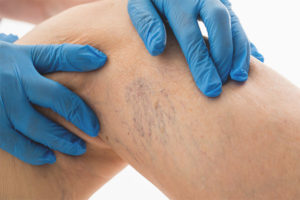
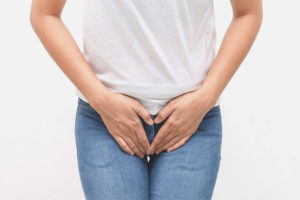
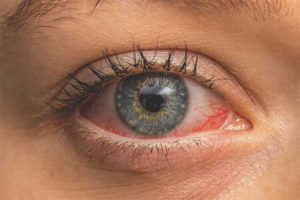

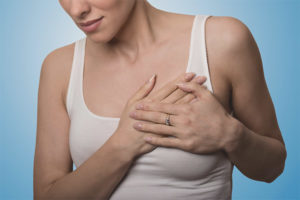
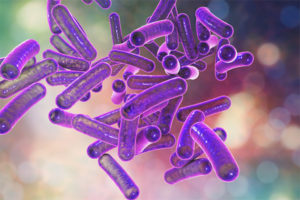


Submit